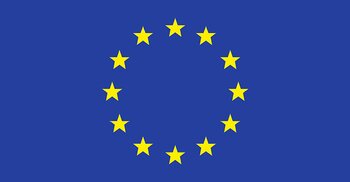July, 2024 - EU introduces 14th package of sanctions against Russia
On 24th June, 2024 the European Union (EU) issued its 14th package of sanctions against Russia by amending and expanding existing Council Regulations. The aim of these sanctions is to target sectors of the Russian economy, including energy finance and trade, and to tighten the enforcement of existing sanctions so as to further reduce Russia’s sources of revenue and capacity to wage war.
The sanctions prohibit, as a matter of EU law, the investment in and export of equipment and materials to Russian LNG projects under construction such as Arctic LNG 2 and Murmansk LNG.
Whilst the importation of Russian LNG for use in the EU continues to be permitted, the 14th package includes a prohibition against the importations of Russian LNG into specific terminals which are not connected to the EU gas pipeline network. The new regulations also now forbid the use of EU ports for the transshipment of Russian LNG subject to a transition period. This includes classic ship-to-ship transshipment operations in EU waters and the use of shoreside equipment to transfer LNG cargos from one LNG vessel to another. Thus the regulations prohibit the use of shoreside equipment for transshipment whether or not the LNG cargo is ever stored in shore tanks.
The purpose of these provisions in relation to LNG is to ensure the continued access to Russian LNG for the use of EU states whilst limiting the use of EU facilities to assist Russian interests in the transshipment of such cargos for the use of third-party countries as a means to limit the access of funds to the Russian state. EU facilities have been used by ice class LNG vessels to tranship LNG cargos to LNG ships more suited to warmer waters. The practical effect will be to make it more difficult for such operations to take place which in turn will drive up the transport costs for Russian interests.
The US and UK banned the import of Russian LNG from 22nd April, 2022 and 1st January, 2023 respectively.
The package also includes asset freeze sanctions applicable to over 100 individuals and entities including companies based in countries such as China, Kazakhstan, Turkey and the UAE. The new regulations impose restrictions on certain dual use items, chemicals, plastics, excavation equipment, machine tools and bans the export of manganese ore (CN Code 2602) to Russia and the importation of Russian helium. Specific wind down provisions are applicable for certain cargos.
The EU has also introduced a provision (article 8a in Regulation 833/2014) which seeks to expand the territorial scope of that Regulation so that it applies to non-EU entities which are owned or controlled by EU individuals or entities. To prevent circumvention of the current measures, those EU parties must now use best efforts to ensure their non-EU subsidiaries do not undermine the EU’s restrictive measures. It is anticipated that the EU will issue further clarification of this provision by means of FAQs in due course.
The 14th package also provides that certain ships will not have access to EU ports at all and that there will be a ban on the provision of services to those ships, other than in emergency situations. It is understood that those ships are said to have been engaged in deceptive shipping practices, the carriage of Russian arms and stolen Ukrainian grain and for the circumvention of the price cap applicable to Russian crude and refined petroleum products.
This latest package of sanctions by the EU follows recent sanctions imposed on 13th June, 2024 by the UK and US authorities. These sanctions have added to the complexity of the sanctions environment as although they were similar they were not mutually identical.
The US authorities imposed sanctions on multiple individuals and entities including the designation of the Moscow Exchange, four LNG tankers under construction, LLC Murmansk LNG and Novatek LNG Fuel Kashira.
The UK authorities imposed asset freeze sanctions in respect of a different Novatek entity (Novatek Murmansk LLC) and in relation to certain ships engaged in the carriage of arms to Russia and others used in dark fleet activities as a means to circumvent the price cap regulations used to control Russia’s access to funds derived from its trade in crude oil and refined petroleum products. The UK authorities also applied sanctions against Red Box Energy Services Pte Ltd, several Sovcomflot ships and Ingosstrakh Insurance Company.
If Members have any questions in relation to the above issues they are invited to contact the Club for further information.
